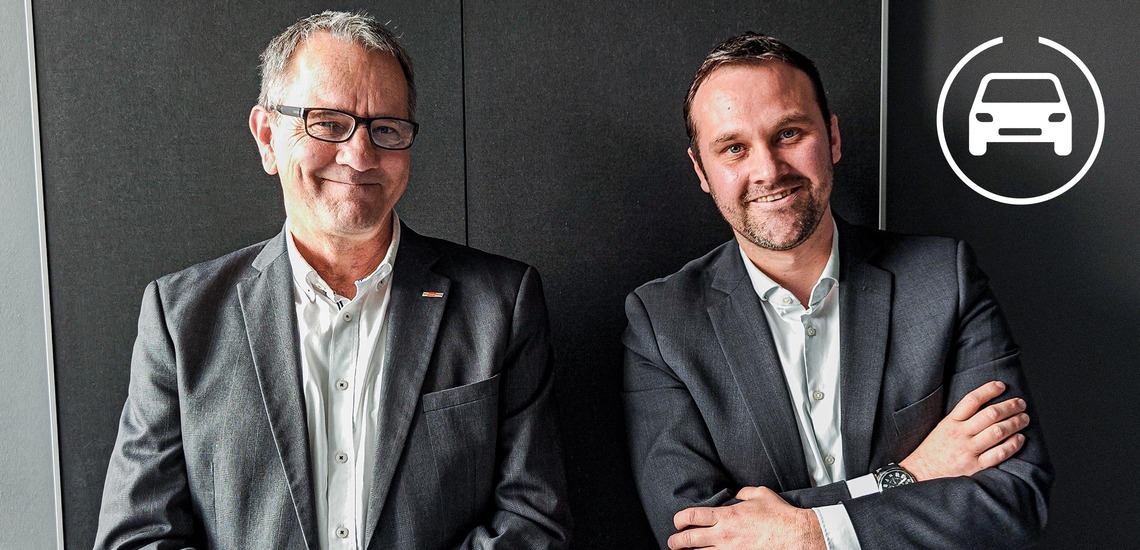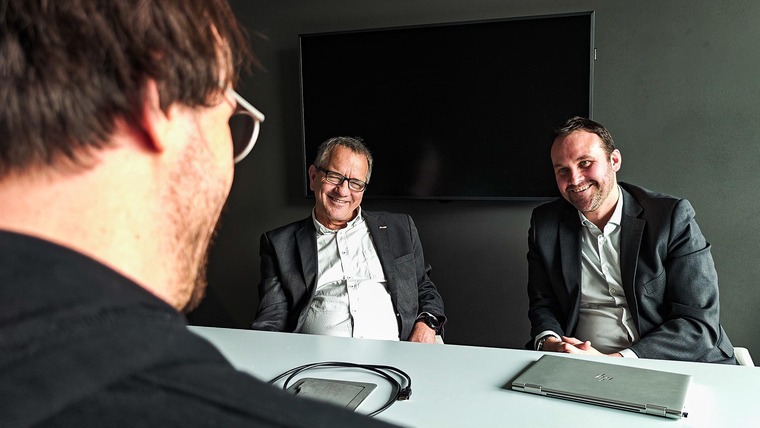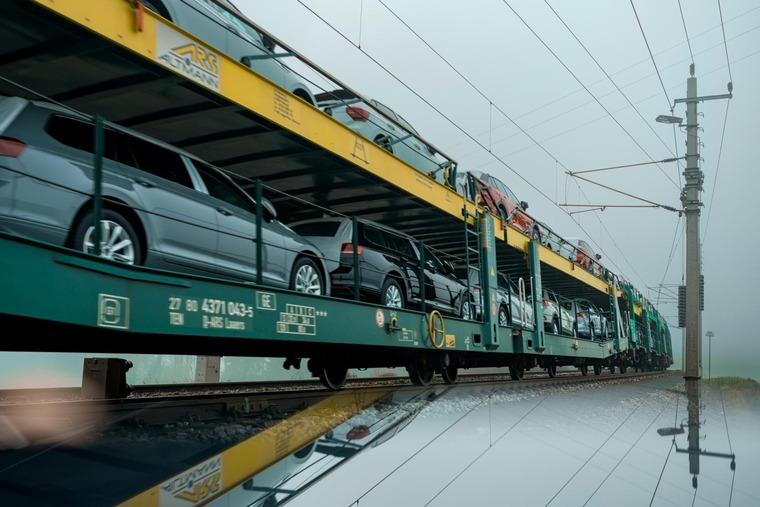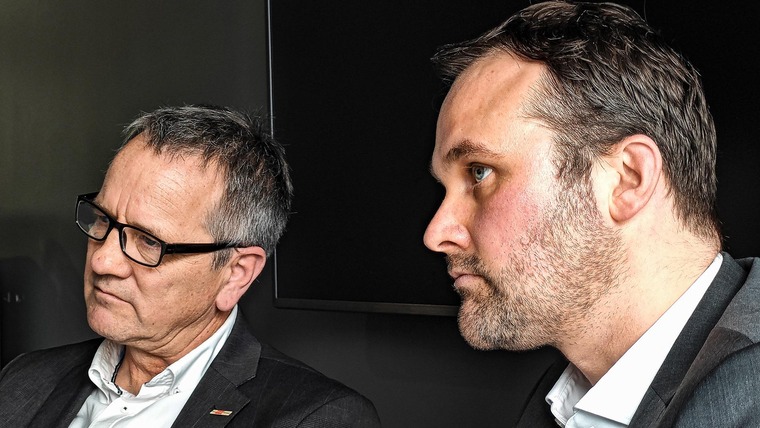And what about individual parts that are delivered to car manufacturers for production?
Steve: For inbound – so transporting parts from the suppliers to the factories – a good 90% is still transported by lorries...
Claus: However, there is already a noticeable shift in thinking towards railway logistics!
In what way?
Steve: Claus means the increasing CO2 consciousness of the industry. Overall, major upheavals are currently taking place in not only the automotive sector, but also in the context of advancing electrification. As RCG and provider of green logistics we are in a special position that is increasingly in demand. Firstly, I recently had a meeting with a significant automobile manufacturer that would like to be carbon neutral by 2030. This only works if the whole logistics process is handled sustainably. That makes us unique and helps our customers to reach their goals more quickly and consistently in both inbound and outbound transport.
Is the effect that great?
Steve: Absolutely. I would say that transport alone is responsible for a good 30 per cent of the CO2 emissions produced by car manufacturers. This is because, to put it simply, manufacturers just assemble individual parts in their factories, but these come from all corners of the world. The potential is huge, especially because parts often still come by lorry.
Transporting by lorry also has advantages, as it is very flexible. How can you hold your own in such a time-sensitive environment - keyword "just-in-time deliveries"?
Steve: It’s true, the requirements of the car manufacturers are high. They not only organise their production according to the "just-in-time" process, but also according to "just-in-sequence". This means the right parts have to be delivered to the assembly line at the right time and in the right order. We are talking about daily slots and only two hour time windows...
Claus: These really need to be met. Otherwise the factory could come to a standstill. And no one wants that.
And what if everything goes wrong on occasion?
Steve: We always have a plan B, always a backup solution for every offer that we negotiate in close coordination with our customers. Our task is nothing less than the continued delivery of operative excellence. This ultimately means that if all else fails and a route is closed for whatever reason, we also help out with a lorry. We are logistics specialists and we want to carry out our tasks, come what may.
Some things however are unpredictable per se and sometimes have serious impacts. The Huthi Rebel’s continued assaults in the Red Sea for example. Aren’t you just helpless in this situation?
Steve: No one can predict these things and they are hitting the world economy with full force. At RCG, we have however learned a lot from the crises in the last years – and thanks to our presence in 18 countries, 13 of which with our in-house traction – we have found a way to at least weaken their impact. So if we see great changes in the world and the flow of goods is affected, then we place our capacities on new corridors so we can better deal with the changes. We have got quite good at it. Another example related to the Huthi-Rebels: The assaults in the Red Sea have led to significantly more goods being currently delivered via the northern ports instead of the southern ports. Sooner or later this will change again, and we presume that Barcelona or Koper will then be much stronger again.





